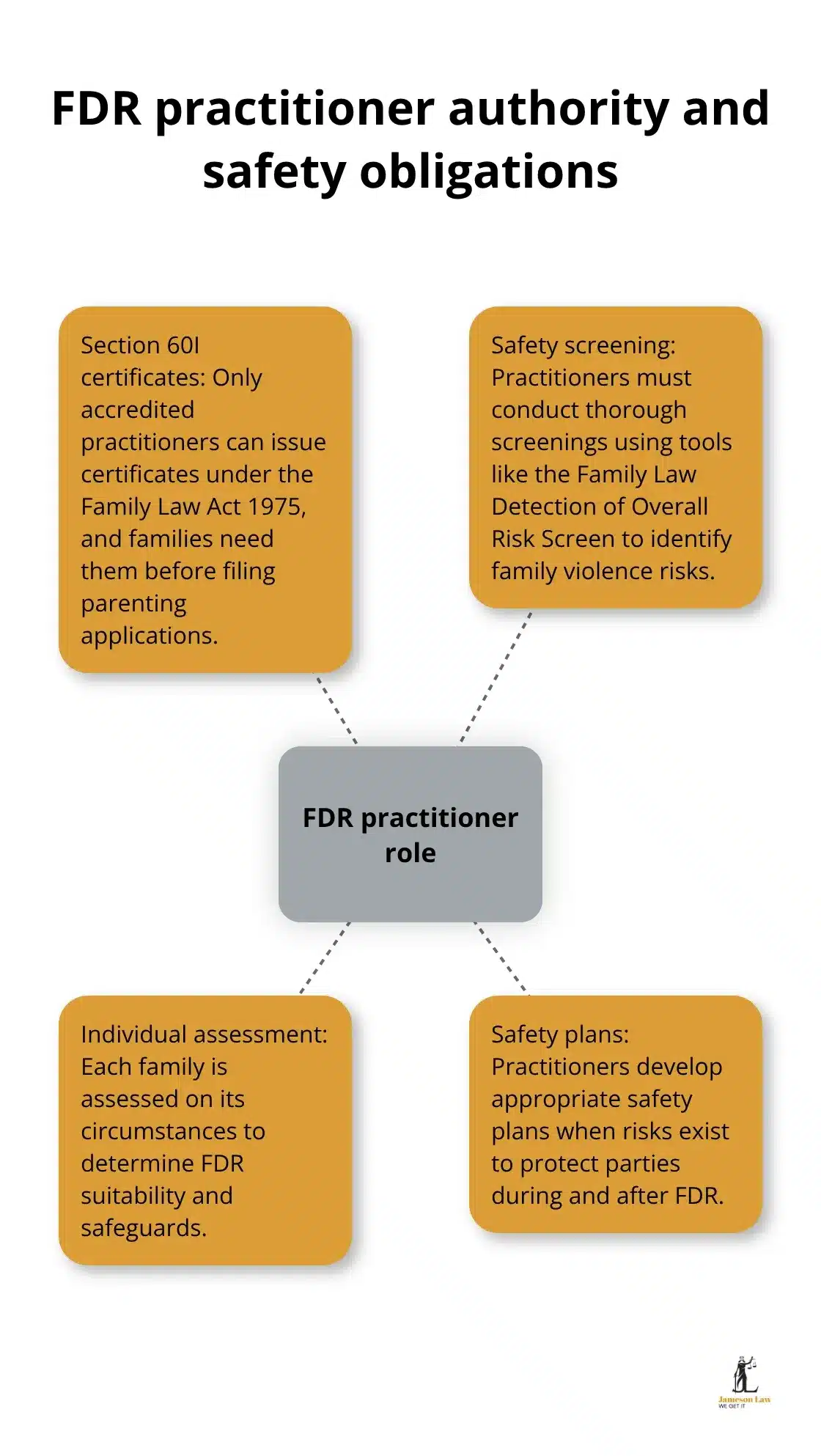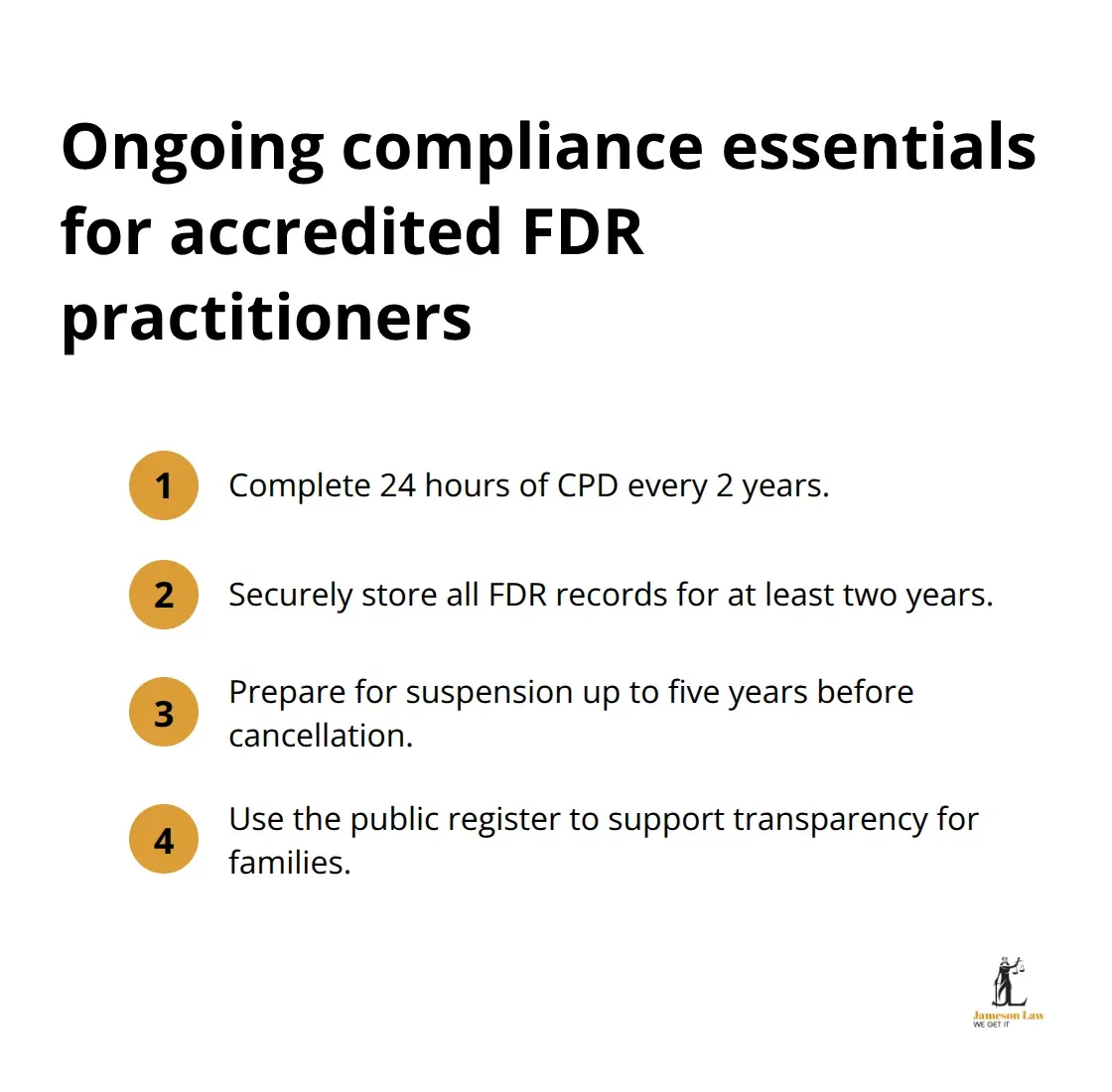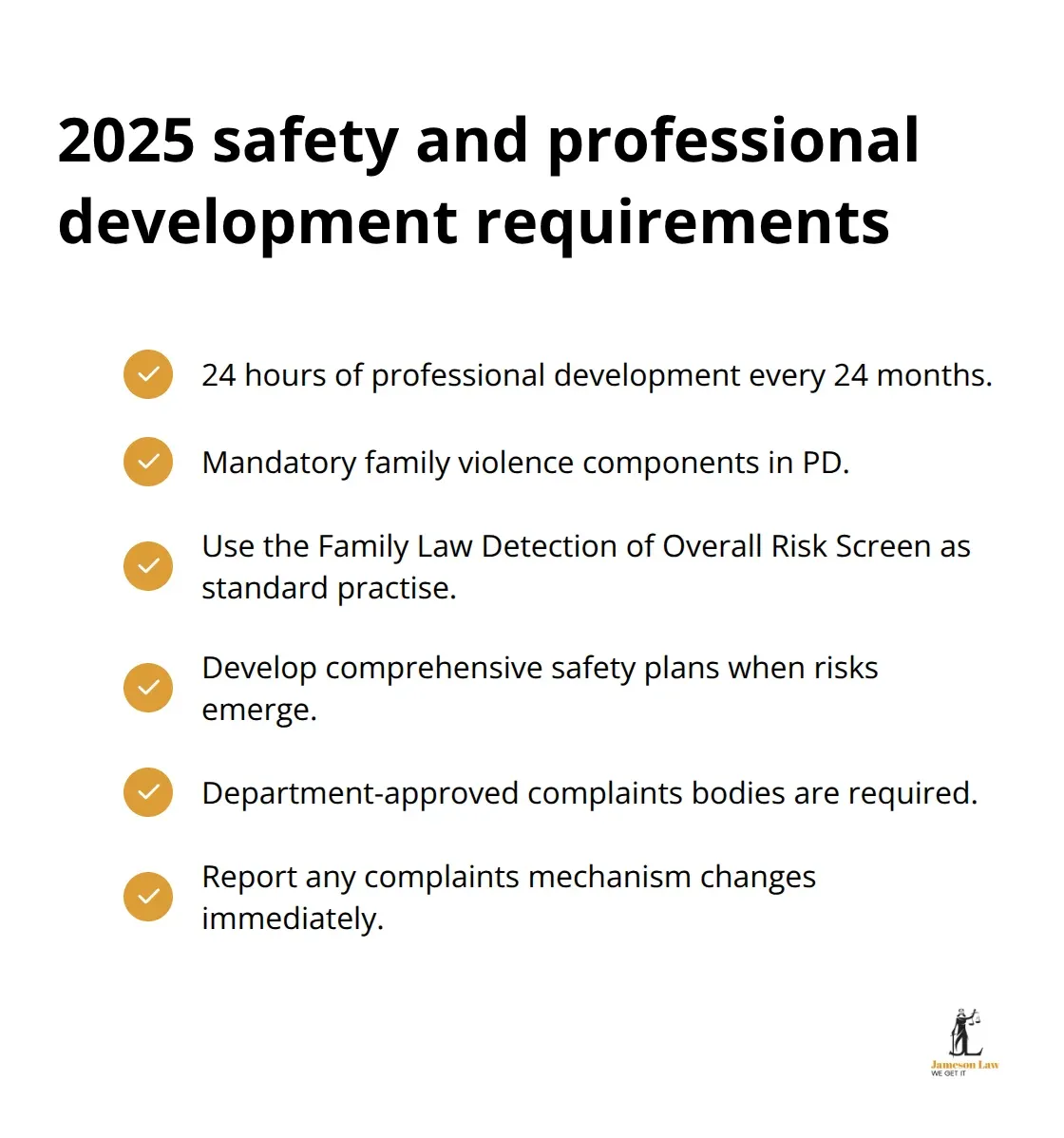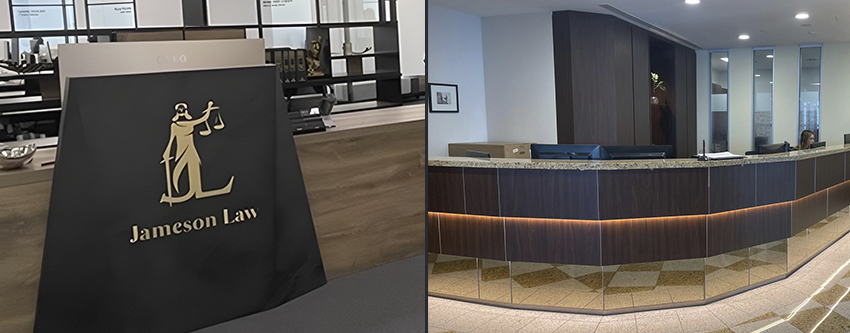Family dispute resolution has become a cornerstone of Australia’s legal system, with strict regulations governing practitioners who guide families through conflict.
The Family Law Family Dispute Resolution Practitioners Regulations 2008 establish comprehensive standards for accreditation, conduct, and ongoing professional development. We at Jameson Law understand these regulatory requirements shape how families access mediation services before pursuing court proceedings.
What Do Family Dispute Resolution Practitioners Actually Do?
Family Dispute Resolution practitioners serve as specialised mediators who help families resolve disputes outside court proceedings. These accredited professionals must complete a Graduate Diploma of Family Dispute Resolution and maintain professional indemnity insurance to practise legally. The Attorney-General’s Department maintains a public register of all accredited practitioners, with practitioners required to complete 24 hours of professional development every 24 months.
Core Responsibilities and Authority
Under the Family Law Act 1975, FDR practitioners hold exclusive authority to issue Section 60I certificates. Families need these certificates before they file parenting applications in court. Professional standards mandate that practitioners conduct thorough safety screenings to identify family violence risks (using tools like the Family Law Detection of Overall Risk Screen). Practitioners must assess each family’s situation individually and develop appropriate safety plans when risks exist.

Mandatory FDR Requirements Before Court Action
Australian law requires families to attempt family dispute resolution before they pursue parenting orders through court proceedings. This mandatory requirement applies to all parenting disputes unless specific exemptions exist. The Federal Circuit and Family Court of Australia will not accept parenting applications without a valid Section 60I certificate from an accredited FDR practitioner. This requirement significantly reduces court congestion while it encourages families to reach agreements through mediation rather than adversarial litigation.
When Courts Waive FDR Requirements
Courts grant exemptions from mandatory FDR in specific circumstances that make mediation inappropriate or dangerous. Family violence situations automatically qualify for exemptions, as do cases that involve child abuse or where urgent court orders are needed to protect children’s welfare. The new regulations (effective April 1, 2025) strengthen these safety provisions by requiring enhanced family violence training for all accredited practitioners.
These regulatory changes reflect broader shifts in how Australia approaches family dispute resolution, with new accreditation pathways and compliance requirements taking effect across the profession.
How Do FDR Practitioners Meet Professional Standards?
The Family Law Family Dispute Resolution Practitioners Regulations 2025 establish three distinct accreditation pathways that replace the previous four-pathway system. Practitioners must complete a Graduate Diploma of Family Dispute Resolution or equivalent program that the Attorney-General’s Department recognises, maintain Australian Mediator and Dispute Resolution Accreditation Standards qualification, and secure professional indemnity insurance before they submit applications. The Attorney-General’s Department processes applications within 28 days and requires candidates to demonstrate they meet the fit and proper person criteria through National Police Checks and comprehensive character assessments.
Mandatory Insurance and Registration Requirements
Professional indemnity insurance becomes mandatory when practitioners submit applications, not after they receive accreditation approval. The Attorney-General’s Department assigns unique registration numbers that remain valid throughout a practitioner’s accredited status. Practitioners must join approved complaints bodies before they commence practise, with the Department publishing a list of approved mechanisms on its website. Working with Children Checks may be required (depending on state legislation), and practitioners must report any changes to their complaints mechanism immediately to maintain compliance.
Professional Development and Record Management
Accredited practitioners must complete 24 hours of continuing professional development every 2 years, with mandatory family violence training components. All FDR records, including case notes and files, require secure storage for a minimum of two years. Accreditations face suspension for up to five years before automatic cancellation occurs, which makes compliance monitoring essential.

The public register displays all accredited practitioners’ names and enhances transparency for families who seek qualified mediation services.
Fit and Proper Person Assessment
The Attorney-General’s Department conducts thorough character assessments that examine practitioners’ professional history, complaint records, and disciplinary actions. Candidates must consent to verification of all provided information during the application process. An authorised officer reviews each application, and their accreditation decision can be challenged through the Administrative Review Tribunal (if practitioners disagree with the outcome). These assessments protect families from practitioners who may lack the character or competence to handle sensitive family disputes effectively.
The regulatory framework continues to evolve as new compliance requirements and practise standards take effect across the profession.
What Major Changes Affect FDR Practitioners in 2025
The Family Law Family Dispute Resolution Practitioners Regulations 2025 fundamentally restructure accreditation pathways and compliance obligations for practitioners across Australia. The Attorney-General’s Department eliminated the previous three-unit pathway option, which forces practitioners who lost accreditation to pursue complete re-qualification through approved Graduate Diploma programs. Professional indemnity insurance must be held when applying for accreditation from April 1, 2025, which creates immediate financial obligations for candidates. The fit and proper person assessment expanded to include comprehensive complaint histories and disciplinary records, with authorised officers who conduct deeper character evaluations that can face challenge through the Administrative Review Tribunal.
Stricter Documentation and Registration Standards
New Section 60I certificates replace previous formats from April 1, 2025, which requires practitioners to include their exact registered name, unique registration number, and signature as displayed on the public register. The Attorney-General’s Department maintains this public register to enhance client transparency, while practitioners face automatic accreditation cancellation after five years of suspension. Record retention requirements mandate secure storage of all case files for minimum two years, with practitioners responsible for implementation of appropriate security measures. Higher education providers must seek departmental approval for their courses, which creates standardised pathways that eliminate inconsistent qualification recognition.
Enhanced Safety and Professional Development Requirements
Professional development increases to 24 hours every 24 months, with mandatory family violence components that reflect the Department’s focus on practitioner competency in high-risk situations. The Family Law Detection of Overall Risk Screen becomes standard practise for safety assessments, while practitioners must develop comprehensive safety plans when violence risks emerge. Approved complaints bodies require formal departmental approval, with practitioners obligated to report mechanism changes immediately to maintain compliance.

These regulatory changes create measurable accountability standards that protect families while they maintain professional practise quality across the dispute resolution sector.
Final Thoughts
The Family Law Family Dispute Resolution Practitioners Regulations 2008 established Australia’s regulatory foundation, though the 2025 amendments represent the most significant changes in over a decade. These regulations now require practitioners to meet stricter accreditation standards, maintain enhanced professional development, and demonstrate stronger character assessments through the fit and proper person criteria. The regulatory landscape prioritises family safety through mandatory family violence training and comprehensive risk screening protocols.
Professional indemnity insurance requirements and public register transparency protect families while they maintain practitioner accountability. The elimination of previous three-unit pathways means practitioners must complete full Graduate Diploma programs, which raises professional standards across the sector. Qualified FDR practitioners remain essential to Australia’s family law system, with their Section 60I certificates that serve as mandatory gatekeepers before court proceedings.
Future developments will likely focus on technology integration and expanded safety protocols as family dynamics continue to evolve. The Attorney-General’s Department’s stricter oversight and approved complaints mechanisms strengthen public confidence in dispute resolution services. We at Jameson Law help clients understand these complex requirements while they access qualified dispute resolution services through our family law expertise.













